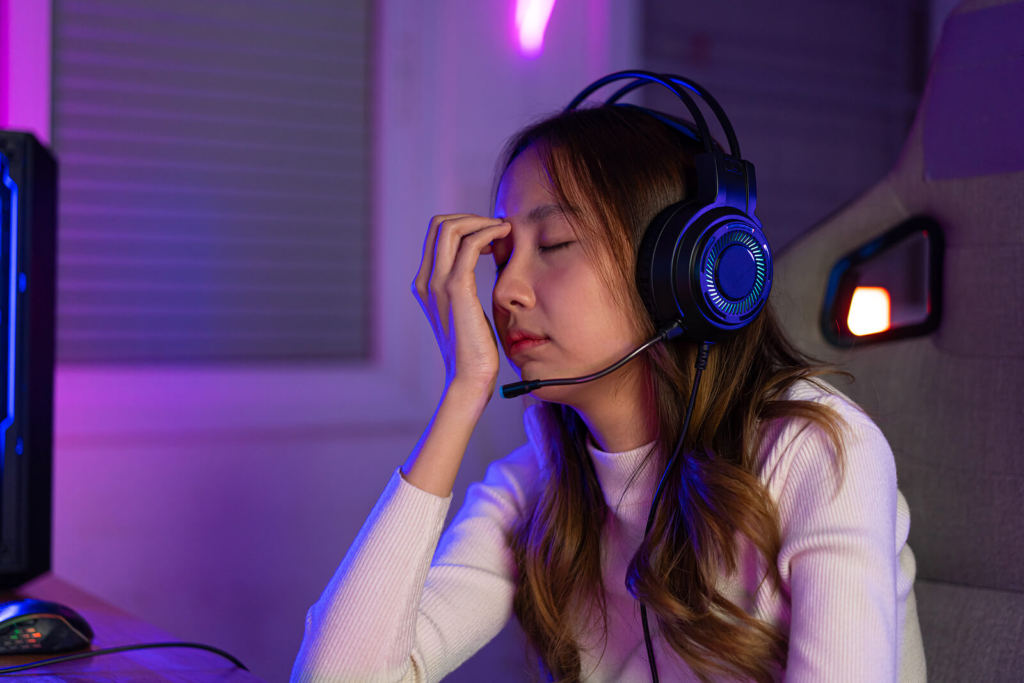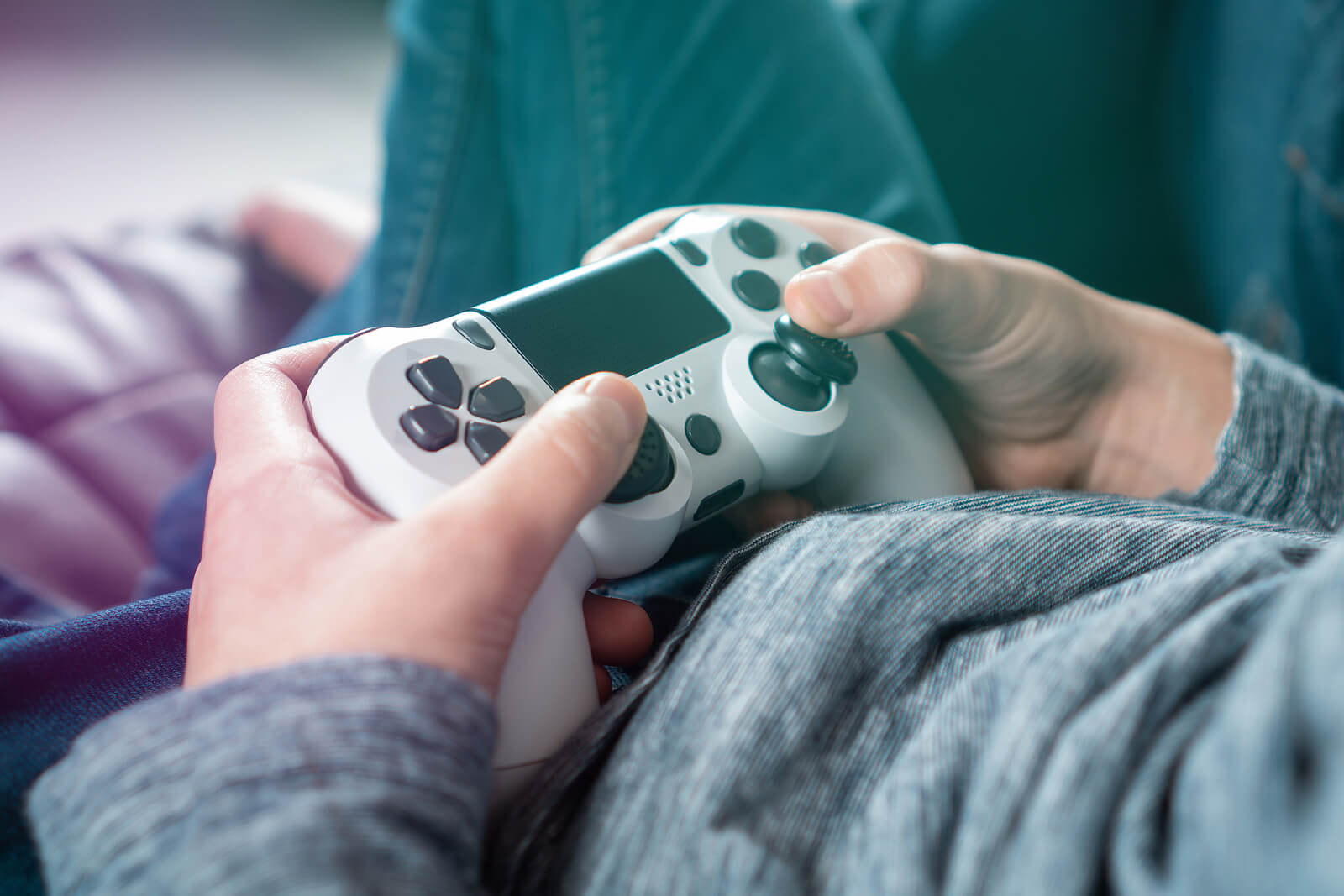Over half of the UK’s population plays video games regularly to de-stress, socialise, and enjoy themselves.
However, an estimated 700,000 to 1,000,000 of these players are grappling with a gaming addiction.
In recent years, online gaming has transformed from a solitary pastime into a global interactive phenomenon that’s captivated over three billion players worldwide.
While people of various ages participate in video games and face the risk of addiction, the majority affected are young individuals.
Regrettably, we have recently encountered numerous students dealing with online gaming addiction themselves or with concerns for a friend.
Put down the controller, and let’s explore the world of gaming addiction — examining potential causes, identifying signs and symptoms to be mindful of, and exploring treatment options.
What is gaming?
Gaming refers to playing electronic video games on consoles, PCs, smartphones, and other devices.
These games can be free to play, purchased through a one-time payment, or feature paid elements within the game.
What is gaming addiction?
Gaming addiction is also called video game addiction or online gaming addiction. It’s characterised by an individual’s excessive and uncontrollable involvement with gaming, which detrimentally affects their everyday life.
The addiction involves a persistent compulsion to play games, even in the face of adverse outcomes and the player’s awareness of undesirable consequences.
Signs and symptoms of gaming addiction
Recognising the signs and symptoms of gaming addiction is essential in identifying potential issues for yourself or others.
Those struggling with a gaming addiction may:
- have a persistent preoccupation with the game
- have a constant desire to play the game
- exclusively talk about the game
- neglect other hobbies and interests for the game
- feel distressed or upset when they’re unable to play the game
- be unable to reduce the time spent gaming despite efforts to do so
- lie to loved ones about the duration of gaming sessions
- need to spend an increasing amount of time gaming to feel satisfied
- play video games as a coping mechanism for negative emotions
- experience problems in personal relationships, work, school, or university due to excessive gaming
- neglect personal hygiene and self-care.
If you think you may have a gaming addiction, it’s crucial to assess the duration of gaming sessions alongside the impact of gaming on your daily life.
For instance, a person who plays video games five hours a day while maintaining a balanced lifestyle, fulfilling responsibilities such as work or university, and socialising may be fine.
On the other hand, if a person spends the same amount of time gaming but neglects essential daily tasks, it indicates a potential gaming issue that needs further exploration.

What causes gaming addiction?
For those caught in its grip, gaming addiction can be comparable to drug addictiveness.
Similar to drugs, gaming provides a temporary euphoria that users find themselves chasing repeatedly, leading to a need for extended playing sessions to achieve the same level of satisfaction.
While each person has unique reasons for gaming addiction, several common factors can contribute to a growing addiction.
Gaming addiction can occur due to:
- boredom — gaming can become an enticing escape from monotony and boredom.
- an underlying mental health disorder. Gaming is an immersive escape from reality for people dealing with depression, anxiety, or stress — offering a temporary respite from real-world challenges.
- social interaction and a sense of belonging — gaming provides a platform for socialising, particularly appealing to those who struggle with interpersonal connections offline, granting them a sense of inclusion and community.
- video games featuring reward systems that trigger the brain’s release of dopamine — a neurotransmitter associated with pleasure and gratification, further reinforcing the addictive cycle.
- constant accessibility, thanks to smartphones and portable gaming devices.
- neurodiversity — neurodivergent people are slightly more susceptible to addiction in general.
What impact can gaming addiction have?
Gaming addiction can significantly impact various aspects of a person’s life.
Those struggling with gaming disorders tend to prioritise gaming over crucial areas such as personal hygiene, social interactions, work obligations, and other responsibilities.
It’s not uncommon for gaming addicts to exhibit outbursts and conflict with those closest to them. Relationships with loved ones often bear the brunt of addiction, leading to strained relations and instances where treatment is sought for the affected individual alongside the addict.
Additionally, gaming disorders can have a significant financial impact. Excessive expenditure on games, consoles, accessories, and in-game purchases can accumulate substantial costs, impacting personal finances and potentially leading to financial instability.
Treatment for gaming addiction
The most important thing to know about gaming addiction is how to address it.
Numerous resources and treatment options exist in the UK to help individuals struggling with gaming disorders.
One notable establishment is a dedicated gaming clinic, the National Centre for Gaming Disorders, which opened in October 2019.
Since then, the clinic has successfully treated over 745 individuals for gaming addiction. While the gaming clinic is located in London, addiction centres country-wide are also well-equipped to provide support and treatment for gaming addiction.
The primary objective of gaming addiction treatment is to equip individuals with the necessary tools and support to break free from the addictive cycle, address the underlying causes, and sustain long-term recovery.
Treatment options include inpatient and outpatient care, depending on an individual’s needs and circumstances.
Inpatient treatment for gaming addiction
Inpatient treatment involves a stay at a residential rehab centre that provides a secure and structured environment.
Specific treatment approaches differ between postcodes, but patients are commonly offered individual or group therapy, cognitive behavioural therapy (CBT), and holistic therapies such as meditation and yoga.
CBT is currently considered the most effective tool for treating gaming addiction.
Outpatient treatment for gaming addiction
Outpatient care typically involves group-based sessions conducted by a counsellor or therapist near a person’s home.
CBT will be included in the sessions.
This treatment approach allows individuals to maintain their regular routines and responsibilities.
However, it’s important to note that outpatient treatment is generally less effective than inpatient treatment.
What to do if you think you might have a problem with gaming
If you require assistance for gaming addiction, it’s advisable to consult your GP to discuss available treatment options.
While the NHS offers limited treatment for gaming addiction, plenty of private options are available for individuals seeking further or quicker support and treatment at a price.



